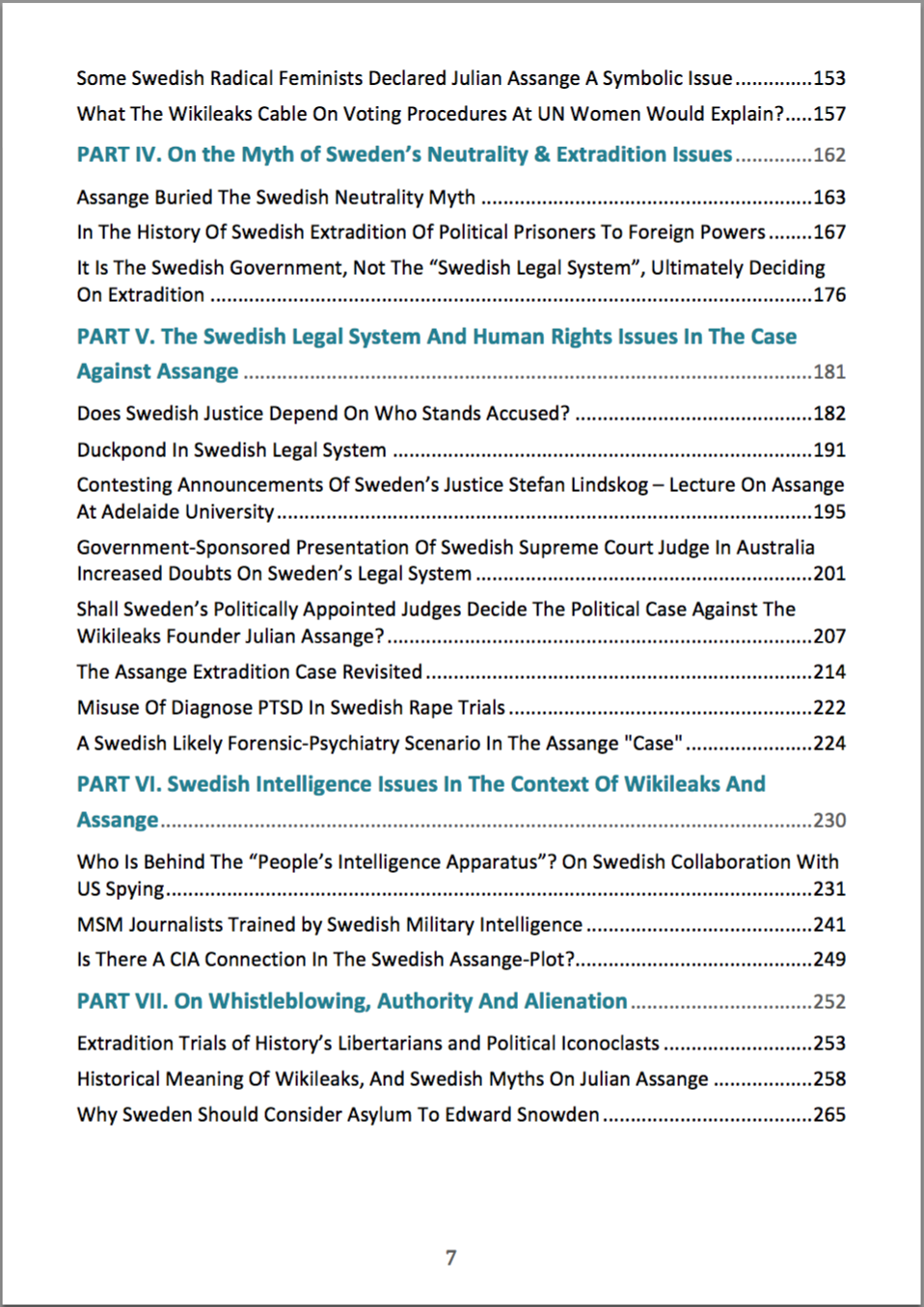Published in Professorsblogg.com 2 Feb 2014
In
the middle of an interesting Swedish debate on the whereabouts of the
case in London, with a growing questioning on the validity of the "case
Assange" done by multiple personalities of the legal system, it is now
announced that US Justice Minister Eric Holder is scheduled to visit
Sweden. The visit, due to the 4 of February, corresponds to an
arrangement by the Swedish Parliament and the U.S. Embassy in Stockholm.
According to a brief dispatch in SvD,
it is assumed that Holder will also meet his Swedish counterpart
Beatrice Ask. Other sources refer that Eric Holder shall be giving a
lecture at a venue in the Swedish Parliament titled, "A More Just and
Inclusive World: Confronting the Civil Rights Challenges of Our Time".
Justice
Minister Holder will be surely informed by his Swedish hosts on the
niceties of the Swedish Justice system. In the context, he will be
reassured on the loyalty of Sweden regarding the requests from US
Justice and other government agencies. After all, the Swedish parliament
complied efficiently with the US requests of instituting a new
surveillance/spy legislation (FRA lagen) aimed to serve the
interests of NATO as well as US corporations’ interests. In the same
fashion, the Swedish Ministry of Justice passed the legislation as
requested by the American government to protect the commercial interests
of the U.S. entertainment enterprises.
At
the expected meeting with PM Reinfeldt, Minister Holder will be
reassured, as the PM has publicly stated specifically referring to their
case against Assange, that this is a rättsstat, meaning a country with full respect for the law. But Minister Holder doesn't need such reassurances. He has the facts with him about the unconditional Swedish "legal" collaborationist stance and praxis:
Namely,
Sweden has granted 100 per cent of the extradition cases requested by
the US, provided that the persons are on Swedish territory. This is done
by the Swedish authorities with or without “legal system”. This was the
case of the “extraordinary renditions”, namely prisoners given directly
by the Swedish police, total clandestinely, to the CIA team sent to
pick them up in the airports at the heart of Stockholm.
The rättsstat
that Prime Minister Reindfelt will be talking about is, however, also a
constellation of peculiarities in the judicial, police and legal
systems. Here is a sample of the “irregularities” - viewed by
international standards - concerning the administration of justice with
particular relation to the Swedish case against Julian Assange. Other
items of the legal (and political) context of the case are
discussed in my book "Human Rights Issues in the Swedish Case VS. Julian
Assange". The book will be soon available on-line in Libertarianbooks.se
- Sweden has a judiciary system in which judges participating in the courts are appointed by the political parties (there is no Jury system in Sweden, nor does the institution of Bail exist in Sweden). See further down in the book, chapter “Shall Sweden’s Politically Appointed Judges Decide The Political Case Against The WikiLeaks Founder Julian Assange?”
- Sweden allows secret, "closed-doors" trials. Particularly with regard to sexual-offences trials, where secret trials are the most common form used in the Swedish justice system.
- The appeal system in Sweden has been notably reduced after a 2008 law (the so-called EMR reform) devised to minimize the number of cases resulting in appeals to higher courts.
- In the Swedish case against Assange, the police investigators conducted interrogations without video-recording, sound-tape recording, or other forms of transcription. This is an aggravating anomaly, which infringed the clear standard procedures advised by the Police Authority with regard to cases involved suspicion of rape.
- The interrogation of one of the nominal accusers was performed by a police officer that was a friend of the other nominal accuser.
- The interrogation of Julian Assange could have very well have been conducted in Sweden, but the prosecutor chose to issue an Interpol warrant, which made possible the fabrication of an extradition case.
- The law-firm defending the accusers is co-owned by a politician, Mr. Thomas Bodström (former Minister of Justice), who at the time of the accusation was a member of the same political group within the Swedish Social Democratic Party as the accuser Ms. AA, who was the political secretary.
- The actual lawyer appointed by the firm (the other co-owner of the law firm) was initially Mr. Claes Bogström, who - together with the prosecutor in the case, Ms. Marianne Ny, and the former Minister of Justice and chairman of the Justice Committee of the Swedish Parliament, Mr. Thomas Bodström - participated in the study of new legislation which radicalized the proceedings and penalties for sexual offences in Sweden.




No comments:
Post a Comment